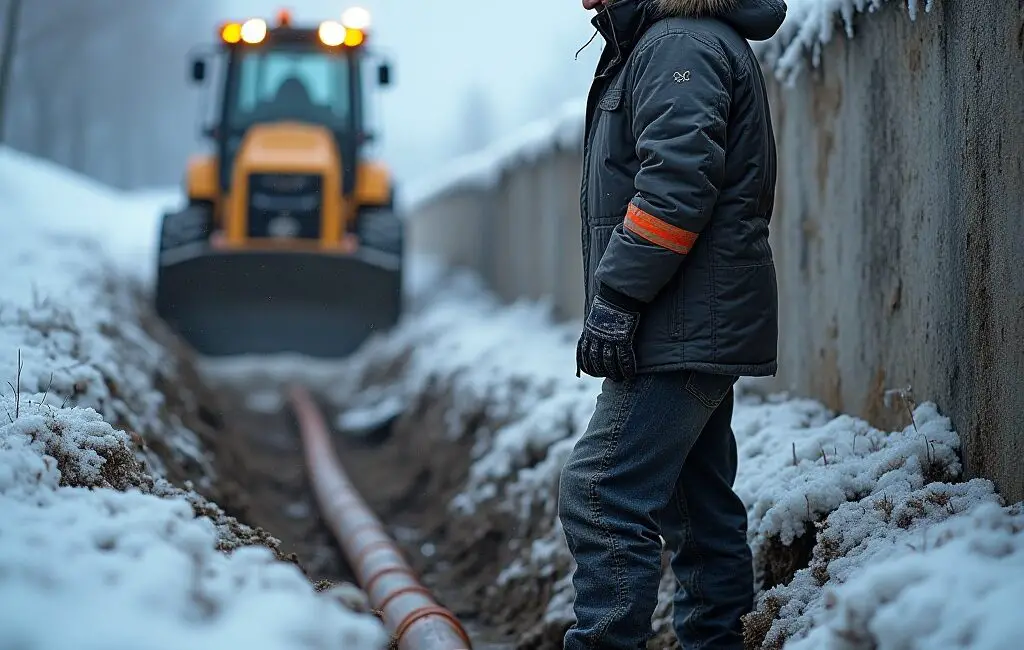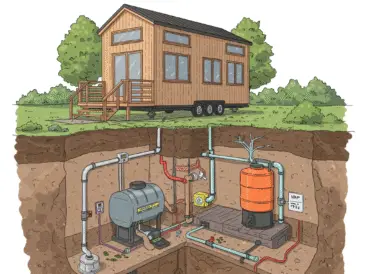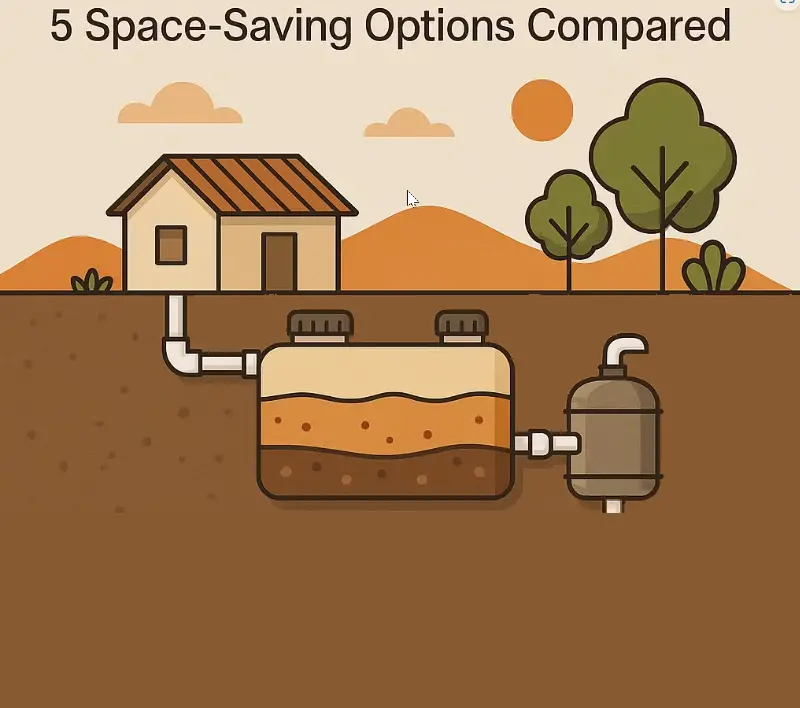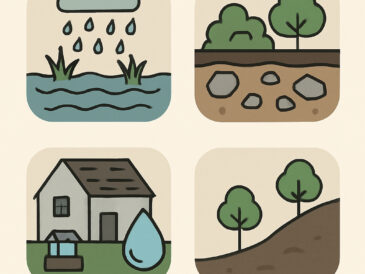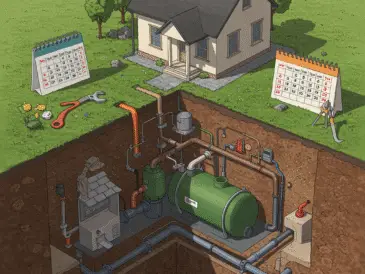Installing a septic system might seem like a warm-weather project, but Mother Nature doesn’t always cooperate with our home improvement timelines. Whether you’re building a new home, replacing a failed system, or dealing with an emergency, winter septic installation might be your reality. The good news? With proper planning and the right team, installing a septic system in winter isn’t just possible—it can actually offer some unexpected advantages.
Understanding seasonal factors in septic installation is crucial for homeowners and builders alike. While spring and summer are traditionally considered ideal times for excavation work, winter installations have become increasingly common thanks to advances in equipment and techniques. The key lies in knowing what challenges you’ll face and how to overcome them effectively.
Why Consider Installing a Septic System in Winter
Before you dismiss winter installation as too complicated, consider the compelling reasons why this timing might actually work in your favor.
Scheduling Availability and Contractor Flexibility
Winter is the septic industry’s equivalent of off-peak hours at your favorite restaurant—you’ll get better service and more attention. Qualified contractors who might be booked solid from April through October often have more availability during winter months. This means you’re not just another job in their queue; you’re getting their focused expertise when they have time to handle your project with care.
The reduced demand also means contractors can be more flexible with scheduling around weather windows. Instead of rushing to the next job, they can wait for optimal conditions and take the time needed to do the work right.
Potential Cost Benefits During Off-Season
Here’s where winter installation gets interesting for your wallet. Many septic contractors offer off-season pricing to keep their crews working year-round. While you might face some additional costs for specialized equipment or techniques, these are often offset by reduced labor rates and material costs.
Equipment rental companies also tend to offer better rates during winter months when demand for excavators and other heavy machinery drops significantly. Smart homeowners can capitalize on these savings while getting quality work done.
Immediate Occupancy and Construction Timelines
Sometimes timing isn’t negotiable. If you’re building a home with a spring move-in date or dealing with a failed system that can’t wait until warmer weather, winter installation becomes necessary rather than optional. The good news is that modern techniques make it entirely feasible to complete installations even in challenging conditions.
Challenges of Winter Septic System Installation
Let’s be honest about what you’re up against when installing a septic system in winter. Understanding these challenges helps you prepare properly and set realistic expectations.
Frozen Ground and Excavation Difficulties
Frozen ground is the primary nemesis of winter septic installation. When soil freezes solid, standard excavation equipment struggles to break through, and what normally takes hours can stretch into days. The frost line varies by region—ranging from a few inches in southern areas to several feet in northern climates—making local expertise essential.
Frozen ground doesn’t just slow excavation; it can also affect the precision needed for proper tank placement and pipe routing. Contractors must work more carefully to achieve the exact grades and depths required for optimal system performance.
“The biggest mistake I see in winter installations is rushing the excavation. Yes, it takes longer when the ground is frozen, but proper excavation is the foundation of a system that will work reliably for decades.”
– Mike Rodriguez, Licensed Septic Contractor with 20+ years experience
Limited Accessibility Due to Snow and Ice
Snow and ice create obvious logistical challenges. Heavy equipment needs stable access routes, and accumulating snow can quickly make job sites inaccessible. Even a modest snowfall can hide important markers and make surveying difficult.
Ice presents additional safety concerns for workers and can damage equipment if not properly managed. Smart contractors factor these accessibility issues into their project timelines and pricing.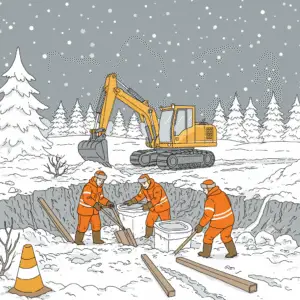
Weather-Related Delays
Winter weather is notoriously unpredictable. A project planned for a clear week can be derailed by an unexpected storm. Unlike indoor work that can continue regardless of weather, septic installation is entirely dependent on outdoor conditions.
These delays aren’t just inconvenient—they can cascade into other issues if excavations are left open or materials are exposed to harsh conditions for extended periods.
Cold Temperature Effects on System Components
Extreme cold affects more than just the installation process. Some materials become brittle in freezing temperatures, and adhesives or sealants may not cure properly. Concrete work, if required, needs special considerations for cold-weather pouring and curing.
Even the soil conditions can be affected, with freeze-thaw cycles potentially impacting the stability of excavations and backfill materials.
Solutions and Best Practices for Winter Installation
Now for the solutions that make winter septic installation not just possible, but successful. Professional contractors have developed proven strategies to overcome seasonal challenges.
Advanced Planning and Permitting
Successful winter installations start months before the first shovel hits the ground. Obtaining permits, conducting soil tests, and finalizing system designs during warmer months eliminates delays when installation weather windows open.
Site surveys and soil percolation tests should be completed in fall when ground conditions are stable. This advance work ensures that when installation begins, contractors can work efficiently without weather-dependent preliminary steps.
Specialized Equipment for Frozen Ground
Modern contractors come armed with tools specifically designed for winter work. Ground heaters, steam thawing equipment, and specialized excavator attachments can handle frozen soil that would stop conventional equipment cold.
Some contractors use ground-thawing blankets or propane heaters to soften soil before excavation. While this adds time and cost, it ensures proper excavation depths and clean cuts that are essential for system performance.
Soil Insulation and Anti-Freeze Techniques
Once excavation begins, protecting the work area becomes crucial. Insulating blankets, temporary covers, and strategic material placement can prevent re-freezing and keep work areas accessible.
Experienced contractors also use soil additives and techniques to improve workability in cold conditions. This might include mixing sand with clay soils or using specific backfill materials that handle freeze-thaw cycles better.
“Winter installations require a completely different mindset. You’re not just installing a septic system—you’re managing a complex dance between equipment, materials, weather, and timing. The contractors who excel at this understand that flexibility and preparation are everything.”
– Sarah Chen, Environmental Engineer and Septic System Designer
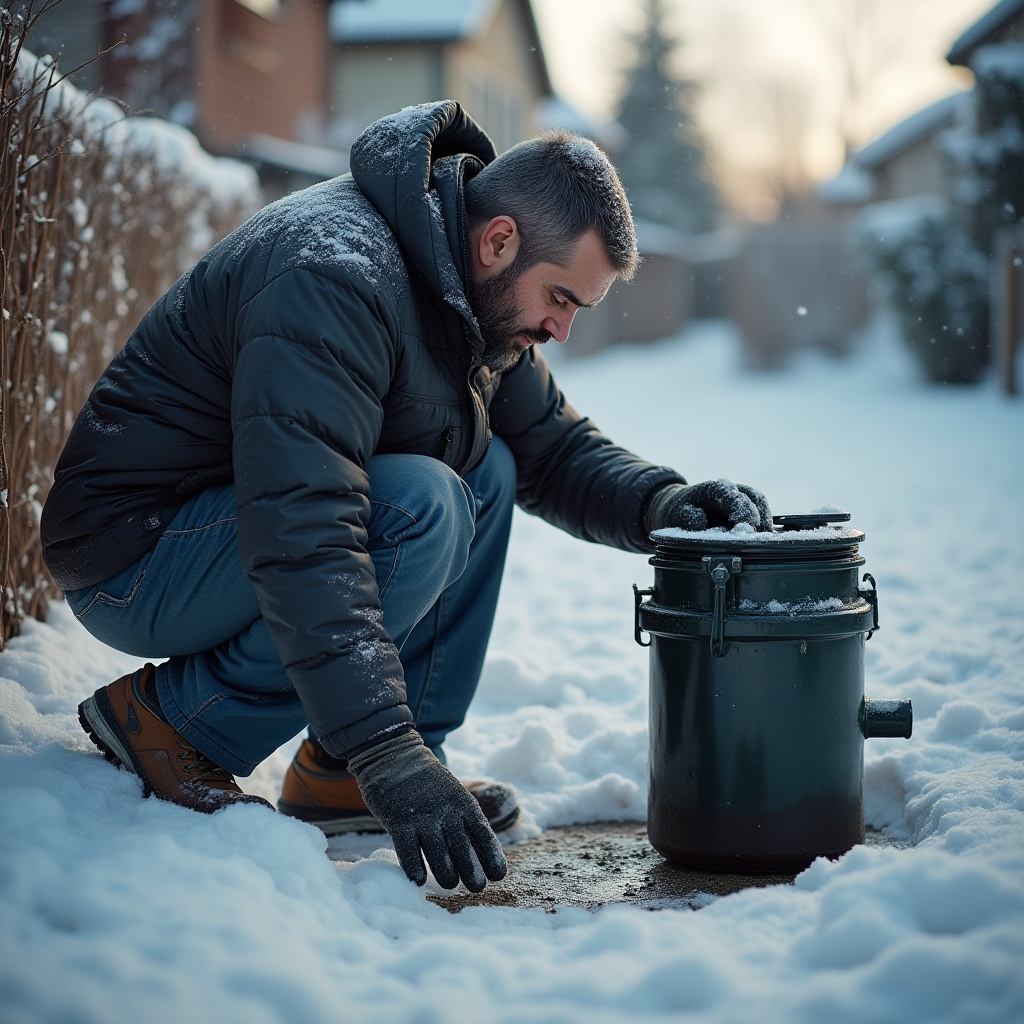 Essential Tips for Homeowners and Builders
Essential Tips for Homeowners and Builders
Whether you’re a homeowner facing an unexpected system failure or a builder with winter deadlines, these practical tips will help ensure success.
Fall Site Preparation
If you know winter installation is likely, use the fall months wisely. Clear vegetation, mark utilities, and ensure equipment access routes are established before snow arrives. Consider stockpiling sand or gravel for access roads if your property is prone to muddy conditions during winter thaws.
Document the site thoroughly with photos and measurements. Snow can hide important landmarks, and having detailed records helps contractors work efficiently when conditions are challenging.
Weather Monitoring and Flexibility
Successful winter projects require weather-dependent scheduling. Work with contractors who monitor forecasts closely and can mobilize quickly when conditions align. Be prepared for schedule changes and understand that weather delays are normal, not negligence.
Having backup dates and flexible timelines reduces stress and allows contractors to work during optimal windows rather than pushing through dangerous conditions.
Winter-Specific Inspections
Cold weather doesn’t excuse poor workmanship, but it does require modified inspection approaches. Ensure inspectors understand winter installation challenges and can properly evaluate work done under challenging conditions.
Some inspection elements might need to wait for warmer weather, but core system components should be thoroughly evaluated regardless of season.
The Critical Importance of Qualified Winter Contractors
Not all septic contractors are created equal, and winter installation separates the professionals from the pretenders.
Local Climate Expertise
Contractors familiar with your local climate understand frost depths, soil conditions, and weather patterns that affect installation success. They know which techniques work in your area and have relationships with suppliers who stock winter-appropriate materials.
Local knowledge also extends to permitting requirements and inspection procedures that might differ for winter installations.
Proven Winter Installation Experience
Ask potential contractors specifically about their winter installation experience. How many systems have they installed in challenging conditions? What specialized equipment do they own or have access to? Can they provide references from recent winter projects?
Contractors experienced in winter work plan differently, price accurately, and handle unexpected challenges with confidence rather than panic.
“I always tell homeowners that winter installation isn’t about cutting corners or rushing—it’s about using specialized techniques and equipment to maintain the same quality standards regardless of season. The right contractor makes all the difference.”
– Tom Anderson, Master Plumber and Septic Installation Specialist
Code Compliance and System Longevity
Quality contractors ensure that winter installations meet all code requirements and perform reliably for decades. They understand that shortcuts taken due to weather challenges will cause expensive problems later.
Proper winter installation techniques actually protect system longevity by ensuring components are installed correctly despite challenging conditions.
Making Winter Installation Work for You
Installing a septic system in winter presents real challenges, but with proper planning, qualified contractors, and realistic expectations, it’s entirely achievable. The key is understanding that winter installation isn’t just summer installation in cold weather—it’s a specialized process requiring specific expertise and equipment.
The advantages of off-season scheduling, potential cost savings, and contractor availability can make winter installation attractive for many homeowners. When you factor in advances in equipment and techniques, winter installation becomes a viable option rather than a last resort.
Success depends on thorough advance planning, choosing contractors with proven winter experience, and maintaining flexibility around weather-dependent scheduling. Don’t let winter weather derail your septic system needs—embrace the season with proper preparation and professional guidance.
Ready to explore winter septic installation options? The experts at septicservicecenter.com have the experience and equipment to handle challenging winter installations while maintaining the highest quality standards. Contact us today to discuss your project timeline and discover how our winter installation expertise can keep your project on track regardless of the weather outside.
